Description
A beautiful AA arrival! Super clean, sweet edged and a great example of a traditional Kenya profile.
Kenyan coffees can be quite potent, especially if compared to Central or South American coffees. They are brighter, usually heavier bodied with more potent spicy chocolaty notes.
Nyeri county is perhaps the most well-known of the central Kenya counties. Kenya’s coffee is dominated by a cooperative system of production, whose members vote on representation, marketing and milling contracts for their coffee, as well as profit allocation. It’s not perfect, and in Kenya in particular the number of individual margins sliced off an export price before payment reaches the actual farms is many, leaving only a small percentage to support coffee growth itself, and most often this arrives many months after harvest.
However, Kenya coffees are sold competitively by quality (which is why this lot is on the pricier side), which means well-endowed counties like Nyeri that produce a high percentage of top lots each season, achieve very high average price for the coffee year after year, the smallholders here with a few hundred trees for the most part, are widely considered to be middle class.
Tasting Notes: A very clean, exotic and balanced cup of coffee. This cup hit the classic Kenyan cup profile on the head without being too overwhelming like some (very balanced in its tones). Not quite sizzling but a very noticeable lemony floral tone upfront at the light to medium roast points balanced with some stronger but very clean chocolate tones. A hint of spice and soft fruit can be found in the aftertaste. Light roasts will swing the balance towards the floral citric side, darker roasts more towards the jazzy baker’s chocolate aspect. Holds up into 2nd crack for you dark roast fans. Low acidity and strong bittersweet chocolate tones with the traditional Kenyan spice note that leaves a very smoky tone on the pallet.
Roasting Notes: Clean, great screen and easy to roast. If you like a little acidity, this cup shines at a nice medium roast. Lighter roasts work well but only for very citric floral coffee fans. Right around 2nd crack to just into it will reduce the acidity pretty drastically from the lighter roast points. a 3-4 day setup really smoothed out the cup and brought forth a much greater depth of flavors.
More Info:
The Karagoto processing station, or “factory”, as they’re known in Kenya, is one of four sites managed by the Tekangu Farmers’ Cooperative Society (FCS), an umbrella organization that centralizes management and marketing relationships for their member factories. Karagoto itself has 1000 contributing farmer members. Kenya is of course known for some of the most meticulous at-scale processing that can be found anywhere in the world. Bright white parchment, nearly perfectly sorted by density and bulk conditioned at high elevations is the norm, and a matter of pride, even for generations of Kenyan processing managers who prefer drinking Kenya’s tea (abundantly farmed in nearby Muranga and Kiambu counties) to its coffee.
Ample ground and river water supply in Nyeri has historically allowed factories to wash, and wash, and soak, and wash their coffees again entirely with fresh, cold river water. Conservation is creeping into the discussion in certain places–understandably in the drier areas where water, due to climate change, cannot be taken for granted as much — but for the most part Kenya continues to thoroughly wash and soak its coffees according to tradition. At Karagoto, cherry is hand-sorted for ripeness and floated for density before being accepted and depulped each day. After the coffee is washed, it’s soaked in fresh water to stop sugar fermentation and clean the parchment. The coffee is dried over a period of two weeks on raised beds, which are carefully constructed to ensure proper air circulation and temperature control for optimal drying. Coffees are most definitely citrus-forward and elegant with hibiscus-like volatiles and a mouth-watering, sweet-tart minerality.

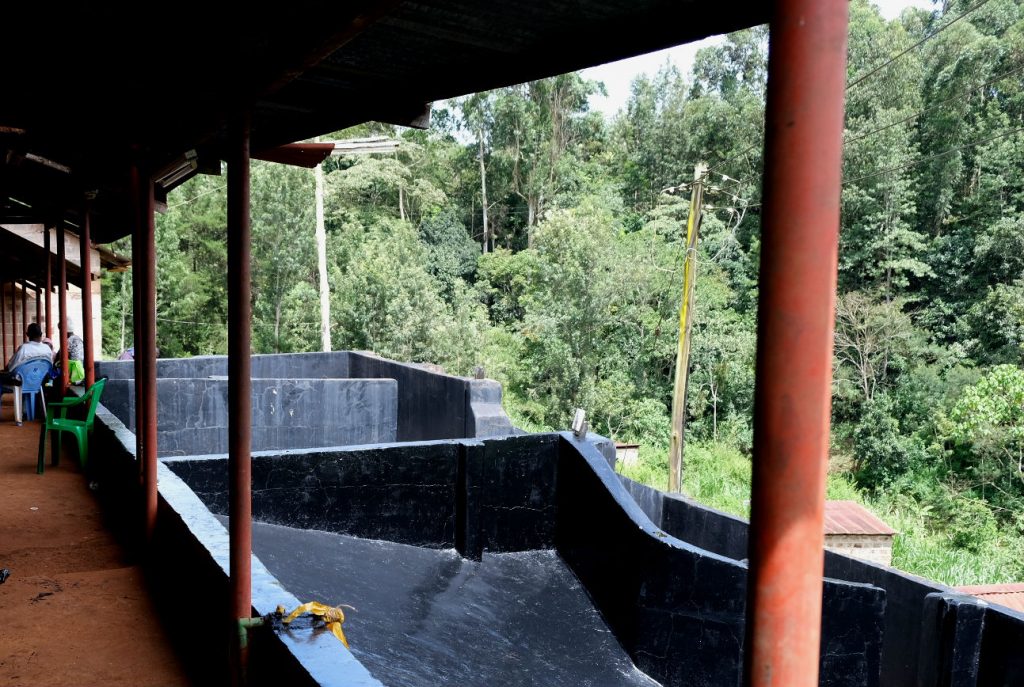
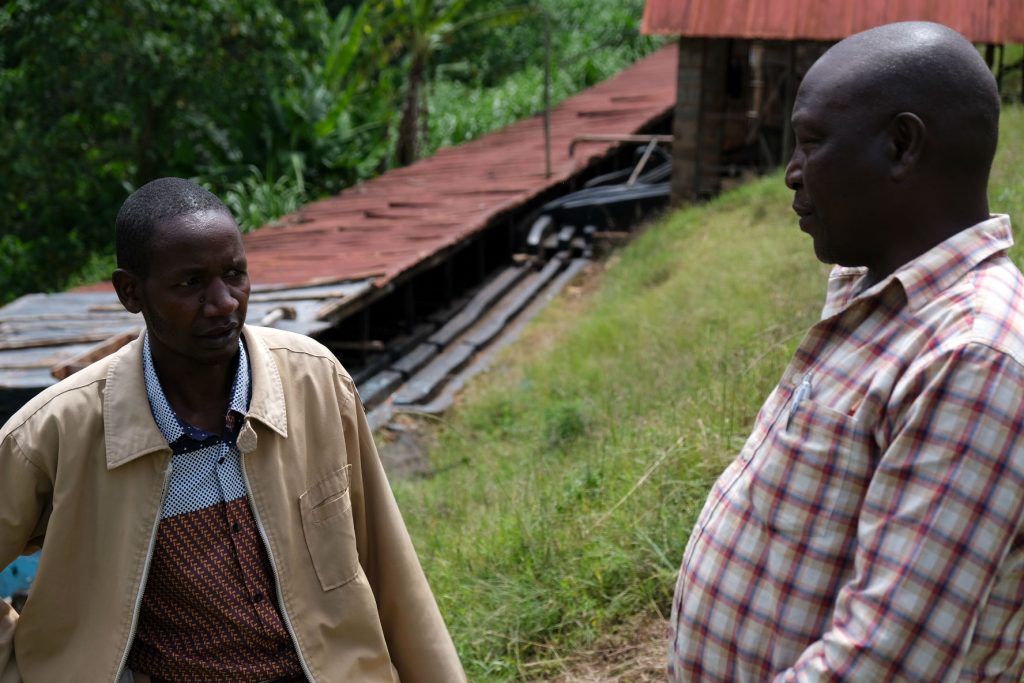
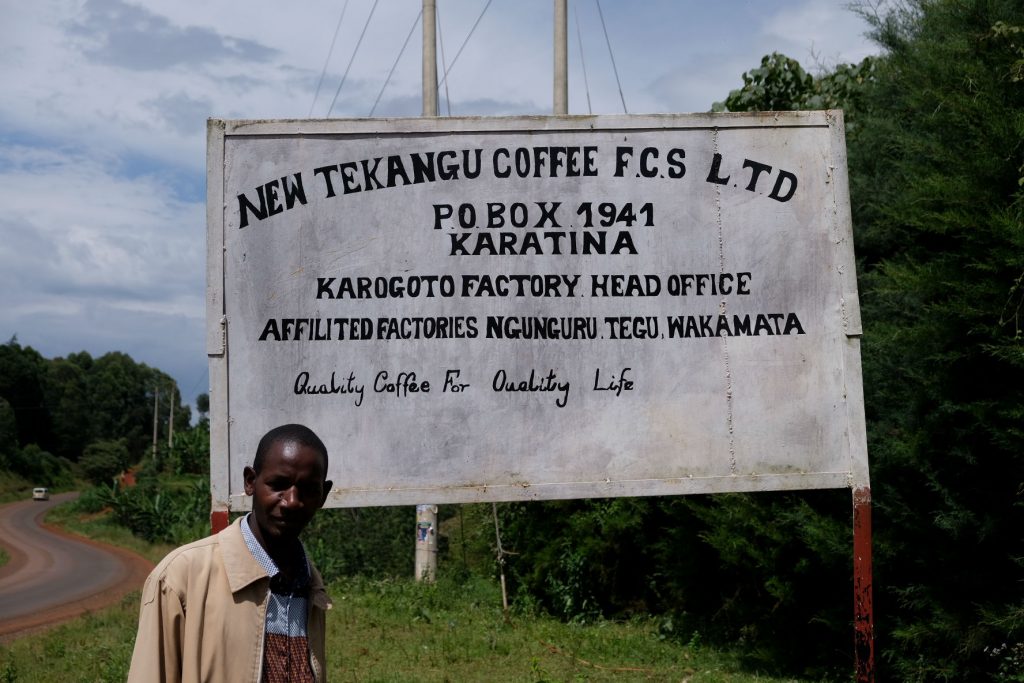

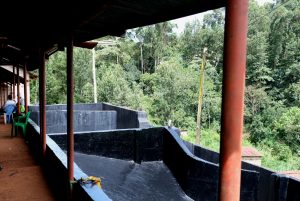

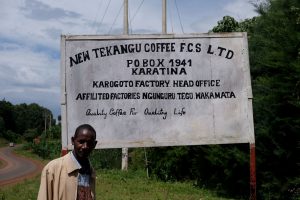
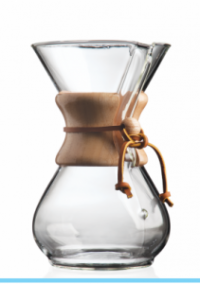
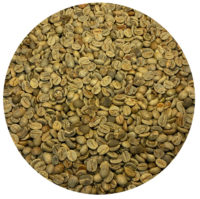



Reviews
There are no reviews yet.